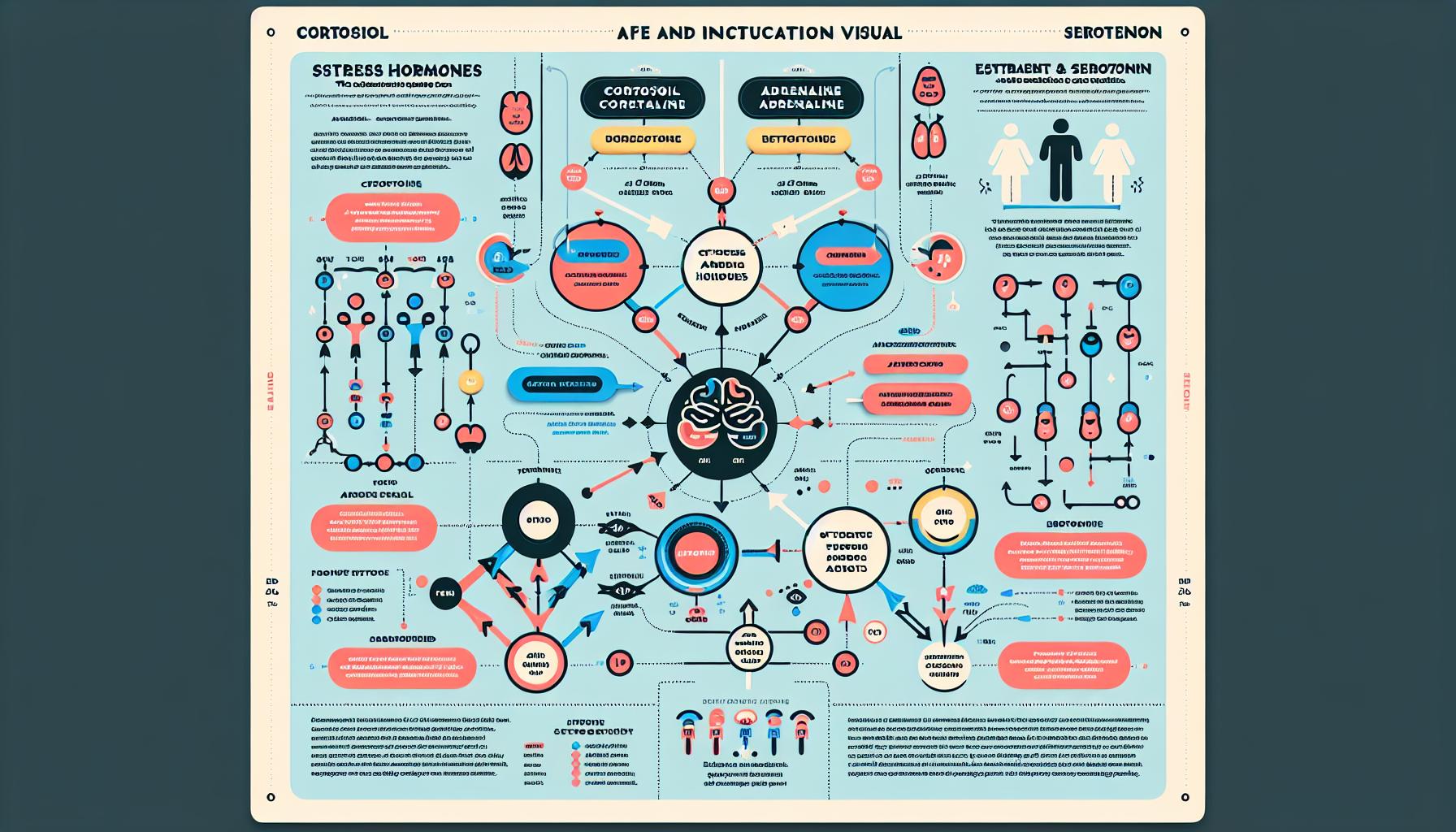Ever wondered why you’re feeling anxious for no apparent reason? It’s possible that your hormones could be the culprits. Yes, you heard it right, a hormonal imbalance can indeed lead to anxiety.
Hormones are your body’s chemical messengers, playing a pivotal role in regulating your mood, appetite, sleep, and overall well-being. When they’re out of sync, it’s not just your physical health that takes a hit. Your mental health can be significantly impacted too.
In this article, we’ll delve into the complex relationship between hormonal imbalance and anxiety. We’ll explore how hormones like cortisol and adrenaline can trigger anxiety symptoms and what you can do to keep your hormonal health in check. So, buckle up for an insightful journey into the world of hormones and anxiety.
Key Takeaways
- Hormonal imbalances, particularly in stress hormones like cortisol and adrenaline, can contribute significantly to anxiety symptoms.
- Hormones play a critical role in regulating various bodily functions, including mood and stress response, and their imbalance may lead to mental health conditions like anxiety.
- Cortisol and adrenaline are produced in larger quantities under stress, triggering anxiety symptoms. Persistent stress can lead to chronic cortisol production, further intensifying anxiety.
- Symptoms of hormonal imbalance-induced anxiety include persistent worry or fear, accelerated heart rate, breathing difficulty, changes in appetite, and restlessness.
- Strategies to manage hormonal health and alleviate anxiety symptoms revolve around balanced nutrition, regular exercise, and effective stress management techniques.
- Understanding and recognizing anxiety symptoms, as well as managing stress and hormonal health, are crucial steps in effectively dealing with anxiety.
Understanding Hormones and Anxiety

All set? Let’s delve deeper into this hormonal maze! Hormones are your body’s chemical messengers, playing vital roles in various physiological processes. They regulate growth, metabolism, mood, and yes – your anxiety levels.
Before we begin, it’s crucial to understand the link between your hormonal health and anxiety. Anxiety is more than just the feeling of worry or fear. It’s a mental health condition that could result from various factors including genetic predisposition, environmental stressors, and hormonal imbalance.
You might be wondering which hormones contribute to anxiety. Here’s your answer:
Cortisol and adrenaline are on top of the list. These are your body’s stress hormones, cranking up when you’re in a state of fight-or-flight. Sudden spikes in these hormones can trigger anxiety symptoms.
Here’s a brief overview of how these hormones work:
Table 1: How Stress Hormones Affect Anxiety
| Hormone | Action | Effect on Anxiety |
|---|---|---|
| Cortisol | Protects body during fight-or-flight response | Heightened levels can prolong anxiety-tagged sensations |
| Adrenaline | Prepares body for sudden stress | Surges can prompt anxious responses |
Next up is estrogen. This hormone interacts with serotonin, a neurotransmitter that regulates mood. When estrogen levels drop, serotonin does too – leading to feelings of anxiety and depression.
Hormone imbalances can be a driving force behind anxiety problems. These imbalances can result from various health conditions, including thyroid problems, diabetes, and menopause.
The Role of Cortisol and Adrenaline in Triggering Anxiety
The interplay of cortisol and adrenaline in your body’s stress response holds significant influence on anxiety. When you encounter stress, your body produces these hormones in larger quantities. This hormonal surge is your body’s way of preparing for danger, a primal response known as the ‘fight or flight’ instinct.
Cortisol, specifically, helps regulate your body’s response to stress. However, excessive production contributes to heightened anxiety sensations. Adrenaline, on the other hand, triggers immediate physical reactions like increased heart rate and blood pressure, often seen during panic or anxiety attacks.
It’s not just about the fight or flight response though. Chronic stress leads to persistently elevated cortisol levels, further intensifying anxiety. Adrenaline acts swiftly, triggering instant responses, while cortisol impacts long-term reactions.
Let’s dive deeper:
- Cortisol
- Persistent stress equates to constant production of cortisol.
- This consistency pushes your body into a state of hyperarousal or chronic stress.
- Extended periods of this state and you could experience anxiety symptoms.
- Adrenaline
- The more sudden and immediate your stress, the quicker adrenaline acts.
- Instant responses include rapid heartbeat, quick breathing, and attention laser focussed on potential threats.
- Over time, these immediate actions can lead to patterns of anxiety, particularly panic attacks.
Understanding these hormonal dynamics can help you grasp why managing stress is vital to control any anxiety symptoms. Remember, it’s not an overnight fix. As with most things, it takes time. Just knowing these interactions can be empowering.
Thus, it’s clear that cortisol and adrenaline play pivotal roles in influencing anxiety. More than that, their regulation is crucial for managing anxiety symptoms and promoting mental wellness. These hormones can be our allies in response to short-term threats but become detrimental when they oversee our system long-term. Learning to manage our stress and the hormones it triggers can help us keep anxiety in check.
Symptoms of Anxiety Caused by Hormonal Imbalance
Hormonal imbalance triggering anxiety may result in a specific set of symptoms. Recognizing these symptoms can be essential in understanding and managing anxiety before it escalates into a more debilitating state.
The most quintessential sign of anxiety is an overpowering feeling of worry or fear. This isn’t your usual worry about everyday matters. It’s a persistent unease that keeps you uncomfortable, and it tends to linger without reason.
You might also experience an accelerated heart rate and labored breathing, which are classic symptoms triggered by your body’s release of adrenaline in moments of panic or apprehension. Adrenaline is a hormone that prepares your body to take action during perceived threats. It’s the driving factor behind the body’s “fight or flight” response.
Another key indicator is difficulty sleeping or insomnia. Stress and anxiety can mess up your normal sleep patterns, keeping you up at night with relentless thoughts and apprehensions. It’s this chronic sleeplessness that amplifies feelings of anxiety and fatigue.
Moreover, you might also notice shifts in your appetite, either eating too much or too little. Stress hormones like cortisol can create a cycle of emotional eating, leading to temporary comfort. Conversely, anxiety might suppress hunger, making food seem unwelcome.
Lastly, you may have bouts of restlessness or feel on edge, with an inability to relax. Anxiety can keep your mind running with worrisome thoughts, making relaxation difficult.
Here’s a snapshot of the typical symptoms combined in a table:
| Symptom | Hormonal Influence |
|---|---|
| Feeling of worry or fear | Stress-induced |
| High heart rate, labored breathing | Adrenaline-driven |
| Difficulty sleeping | Stress-induced |
| Changes in appetite | Cortisol-influenced |
| Restlessness | Anxiety-induced |
Being aware of these symptoms can provide the insights required to tackle anxiety effectively. Understanding how hormones like adrenaline and cortisol cause these symptoms can help you devise stress management techniques. Whether it’s meditation, regular exercises, balanced nutrition, or therapy, managing stress can help keep anxiety at bay. There may not be a one-size-fits-all solution to anxiety, but understanding your symptoms is always the first step towards managing it effectively.
Managing Hormonal Health for Anxiety Relief

Now that we’ve explored how hormonal imbalance contributes to anxiety, it’s time to delve into strategies for managing your hormonal health to alleviate anxiety symptoms. Combining a varied approach of right nutrition, physical activity, and stress coping mechanisms can manage the hormonal imbalance that may heighten your anxiety.
Nutrition – Your Body’s Fuel
Your diet directly impacts your hormonal balance. Certain foods can help stabilize your hormones, as they are rich in essential nutrients needed for hormone production and regulation. For instance:
- Omega-3 fatty acids found in fish, nuts, and seed oils like flaxseed oil helps balance the production of hormones.
- Vitamin B6 in bananas, legumes, and chicken aids in the production of serotonin, a hormone that improves mood and reduces anxiety.
- Magnesium from legumes, whole grains, and avocados helps decrease cortisol levels, a hormone linked with stress and anxiety levels.
Exercise – Your Body in Action
Physical activity plays a crucial part in hormone health. Regular exercise has proven benefits of reducing stress hormone levels like adrenaline and cortisol, while stimulating endorphins, your body’s natural mood booster. You don’t have to run a marathon to reap these benefits – even brisk walking, yoga, or a short aerobic session can stimulate endorphin release.
Stress Coping Mechanisms – Your Mental Shields
Managing stress plays a significant role in balancing your hormones. Practice stress-relief techniques like meditation, deep breathing, or progressive muscle relaxation to keep your cortisol levels in control. Practicing mindfulness can help you better manage your thoughts and emotions, preventing anxiety from escalating.
Remember, your emotional health is just as important as physical health when dealing with anxiety caused by hormonal imbalances. So, always check in with your mental state and take steps to protect it. A healthy mind can subdue the effects of hormonal imbalance, alleviating anxiety symptoms over time.
The journey towards managing anxiety and promoting mental wellness is a continuous one. Understanding and addressing your symptoms makes a difference, but it doesn’t stop there. Adjusting your lifestyle to support your hormonal health is a key element in managing anxiety effectively.
Conclusion
So you’ve seen how hormonal imbalances can indeed trigger anxiety. You’ve learned that it’s not just about the hormones but about managing your overall health. By eating right, getting regular exercise, and mastering stress coping mechanisms, you can help your body achieve hormonal balance. Remember, incorporating nutrients like omega-3 fatty acids, vitamin B6, and magnesium into your diet can be a game changer. Regular exercise isn’t just for physical fitness, it’s a powerful tool to combat stress hormones and uplift your mood. Mindfulness and meditation aren’t just buzzwords, they’re effective ways to keep cortisol levels in check. Your emotional health plays a vital role too. It’s all about creating a lifestyle that supports hormonal health, which in turn, helps manage anxiety and promotes mental wellness. It’s in your hands to make these positive changes for a healthier, happier you.
What strategies are discussed for managing hormonal health to alleviate anxiety symptoms?
The article proposes using proper nutrition, regular exercise, and stress coping mechanisms such as meditation and mindfulness as strategies for managing hormonal health to alleviate anxiety symptoms.
How does nutrition impact hormonal health and anxiety?
Proper nutrition helps balance hormone production, which can alleviate anxiety symptoms. This includes consuming omega-3 fatty acids, vitamin B6, and magnesium, which all play pivotal roles in hormonal balance.
How can exercise impact hormonal health and anxiety?
Regular exercise can reduce stress hormones and boost mood, which in turn can help to manage the symptoms of anxiety.
What role do stress coping mechanisms play in managing hormonal health?
Stress coping techniques like meditation and mindfulness aid in controlling cortisol levels, the body’s primary stress hormone. This can help in managing hormonal health.
How important is emotional health in managing anxiety caused by hormonal imbalances?
The article stresses emotional health as a crucial aspect in managing anxiety caused by hormonal imbalances. It suggests adjusting lifestyle to support hormonal health as a key strategy for effective anxiety management and mental wellness.
The post Managing Anxiety: Can Hormonal Imbalance be the Cause? appeared first on After Anxiety.
Managing Anxiety: Can Hormonal Imbalance be the Cause? published first on https://after-anxiety.com/

